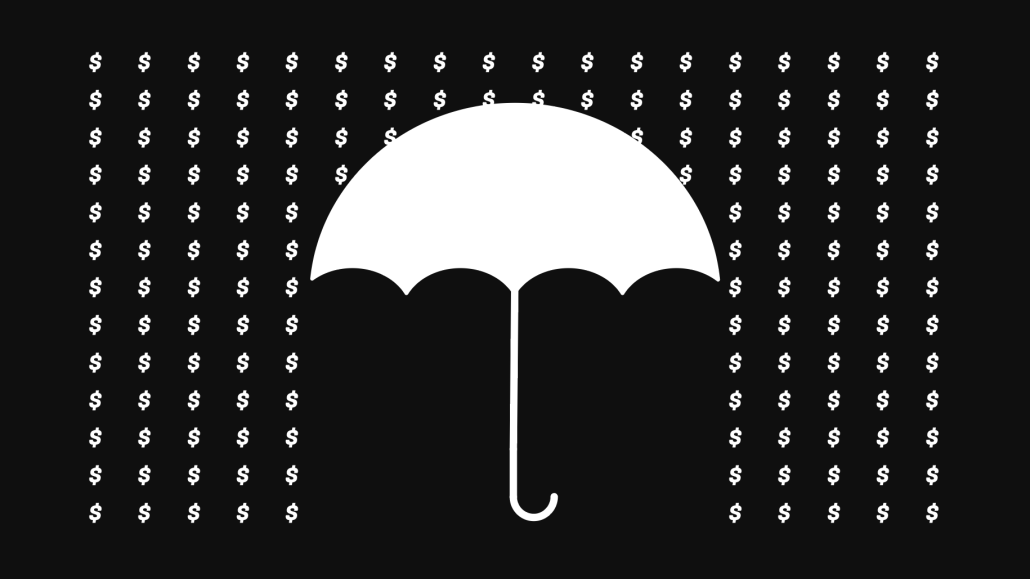Secure your place at the Digiday Media Buying Summit in Nashville, March 2-4
Does Paramount’s move away from Upfront Week signal a real trend away from traditional advance selling and buying?

“Ask not for whom the bell tolls,” goes the modern bastardization of John Donne’s famous line. In this case it could refer to the first real death knell in years for the modern upfront marketplace, in which some $20 billion or so in marketing dollars are committed to be spent across the video spectrum by advertisers looking to secure better pricing and premier inventory.
News broke early Wednesday morning in Variety and elsewhere that Paramount, which represents CBS, MTV, Comedy Central, Nickelodeon and Paramount+ streamer ad inventory, will not present its wares during Upfront Week in mid May of 2023.
The media company will instead host a series of one-on-one meetings the month before with agencies and brand clients, in an effort to address a more complex media environment — which just got more crowded in the last month with the availability of premium inventory from Netflix and Disney+. In other words, Carnegie Hall, where Paramount (CBS) held its upfront for decades, is now available for other performances that Wednesday May 17.
That’s not to say Paramount won’t be trying to secure billions of dollars in upfront commitments — and many agencies and clients will comply, at the right price. But it’s also quite possible that Paramount stepping away is the dislodged pebble that could start the landslide away from selling in the upfront marketplace.
Here’s why: in a year that’s widely expected to be economically uncertain, more and more advertisers are edging away from long-term commitments and toward media investments that provide them flexibility and the option to pull money out of the market.
“Demand for the upfront has been shrinking,” said one major independent media buyer who declined to speak on the record. “We’re now heading into 2023 getting ready for some accounts that are going to scatter and calendar-year [deals]. And while many people are trying to hold the line on the full broadcast upfront from 2022 to 2023, the reality is, that line is going to shrink — that line is going down.”
Given the fact that some advertisers are still figuring out their 2023 marketing budgets — at a much later time in the year than usual — not only will there be fewer dollars, but those dollars spent will require greater flexibility.
“There will be less dollars in the marketplace — that goes without saying at this moment,” said the buyer. “But when I say less dollars, there could be less in the upfront. It’s all about flexibility. I don’t think marketers do not want to market — I think they do want you selling their message to the consumer. When they do it, how they do it [and] where they do it is where they need the flexibility. Digital money can be cancelled any day — it’s very flexible. Video money is not.”
All that said, at this point the other major TV sellers — NBC Universal, Fox, Disney and, as of last year, Google/YouTube — are expected to still present during Upfront Week 2023. How they all adjust their offerings, and whether they incorporate more flexibility into commitments (perhaps for a higher price?) remains to be seen.
More in Media Buying

Future of TV Briefing: CTV identity matches are usually wrong
This week’s Future of TV Briefing looks at a Truthset study showing the error rate for matches between IP and deterministic IDs like email addresses can exceed 84%.

Canadian indie Salt XC expands its U.S. presence with purchase of Craft & Commerce
Less than a year after buying Nectar First, an AI-driven specialist, Salt XC has expanded its full-service media offerings with the purchase of Craft and Commerce.

Ad Tech Briefing: Publishers are turning to AI-powered mathmen, but can it trump political machinations?
New ad verification and measurement techniques will have to turnover the ‘i just don’t want to get fired’ mindset.








